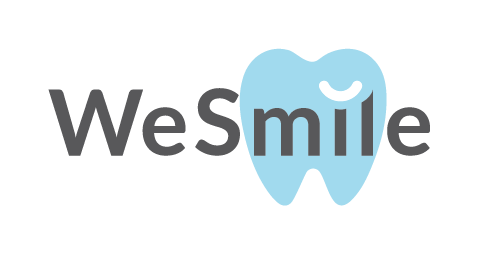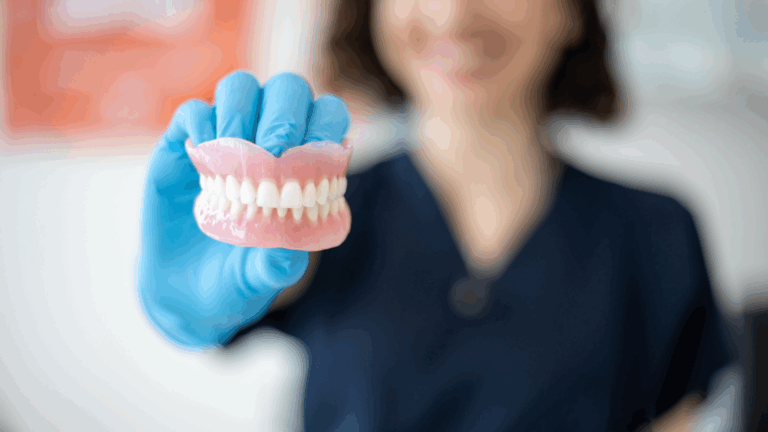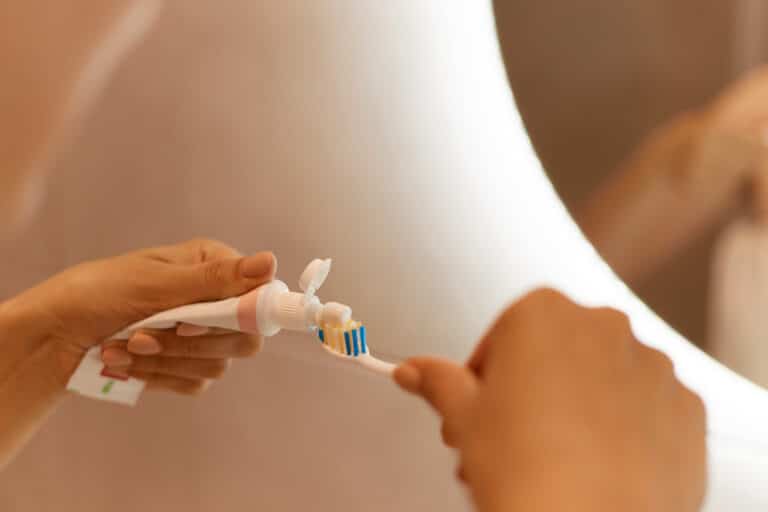Ever wondered why most toothpaste made for sensitive teeth are targeted towards the elderly? Do you remember the first time you saw some fake teeth sitting in your parents’ toilet? Ever wondered why the elderly have a preference for soft food?
It’s no secret that the elderly are more susceptible to dental conditions due to the lifestyle habits and the natural deterioration of the body that happens with ageing. Maintaining good dental hygiene is crucial for the elderly, not only to preserve their smile but also to ensure overall well-being.
Whether you’re young or old, these are things to know and look out for:
Why are the elderly prone to poor dental conditions?

Several factors contribute to the increased risk of poor dental hygiene among the elderly, which in turn cause dental issues that worsen with time. Neglect of dental care in earlier years can result in long-term effects that become more pronounced with age. Here are other reasons why:
Dexterity issues
Physical limitations such as arthritis can make brushing and flossing of teeth difficult, reducing the effectiveness of these essential oral hygiene practices.
Medication & supplements
Numerous medications that older adults and elderly take to treat other health concerns such as cardiovascular diseases, often cause dry mouth. This reduces saliva production which is crucial for neutralising acids and washing away food particles.
Health & nutrition
Conditions like diabetes and cardiovascular diseases, which often afflict the elderly, also have a direct impact on oral health. Diabetes can lead to a reduced ability to fight infections including those in the mouth. Moreover, dietary changes common in older adults, such as consuming softer foods that are higher in carbohydrates, can lead to tooth decay.
Common dental conditions among the elderly
The elderly face a variety of dental conditions, often due to the cumulative effects of a lifetime of oral habits and health issues. When left unchecked and untreated, they face a higher chance of losing their teeth and become more prone to other health concerns.
Gum disease in elderly

Gum disease such as gingivitis and periodontitis, is prevalent among older adults. The gums are inflamed and infected, and symptoms include bleeding gums, bad breath and loose teeth. It is primarily caused by plaque buildup, smoking and poor nutrition. Improper brushing habits, such as brushing gums too harshly is also a cause.
Xerostomia (dry mouth) in elderly
Xerostomia, also known as dry mouth, is frequently caused by medications or medical treatments like radiation therapy. This lack of moisture brings about discomfort, bad breath, and a burning sensation in the mouth. Dry mouth increases the risk of tooth decay and gum disease, as there is less saliva to minimise bacteria and neutralise acids that are harmful to teeth and gums.
Tooth Decay in elderly
Tooth decay and cavities are also common due to factors such as dry mouth, high carbohydrate diets, and inadequate oral hygiene. This happens when residual bacteria in your mouth creates acid that attacks and wears away the tooth’s surface, known as the enamel. This can cause teeth to be sensitive, which can cause discomfort when eating and other dental problems, such as gum recession and tooth loss.
Tooth Loss in elderly
Tooth loss in elderly often results from advanced gum disease, severe tooth decay, or injury. It can affect chewing ability, speech, and facial structure. The consequences of tooth loss extend beyond mere aesthetics; it affects essential functions such as chewing and speaking, which can lead to nutritional deficiencies and diminished social interaction.
Loose Dentures in elderly
Ill-fitting and old dentures can shift about and cause improper pressure on the remaining natural teeth and jawbone. This can cause discomfort and irritation in the gums, leading to sores and infections that may exacerbate existing oral health issues. Additionally, loose dentures can make eating and speaking challenging, which can result in nutritional deficiencies due to the inability to chew food properly.
Yellow teeth in elderly
Yellow teeth, often resulting from the natural aging process, consumption of staining foods and beverages like coffee and tea, and smoking, can cause aesthetic concerns and impact self-esteem.
Importance of treating dental issues in the elderly
Maintaining good oral hygiene is vital not only for keeping teeth and gums healthy but also for ensuring overall health. Poor oral health can lead to infections, as bacteria from the mouth can enter the bloodstream and affect other parts of the body. This is particularly concerning for the elderly, whose immune systems may already be compromised.
Nutritional deficiencies are another significant concern; pain and discomfort from dental issues can make eating difficult, leading to poor nutrition and subsequent health problems. There is a well-established link between periodontal disease and systemic conditions such as diabetes and heart disease, underscoring the importance of oral health in managing these chronic diseases. Additionally, dental problems can lead to social isolation and depression due to discomfort and embarrassment, significantly impacting the quality of life.
Elderly-specific tips to maintain oral hygiene

Good oral health is not achieved overnight, but here are the habits and action we do daily that can help maintain teeth:
It’s hard to nip old habits in the bud, especially for our elderly loved ones. Fret not, there are simple actions that can be introduced to make a big difference in the long run:
Proper brushing technique
Brushing our teeth harder doesn’t mean cleaner teeth. As we remind our folks to brush their teeth twice a day, educating them on how to brush their teeth the right way is important. With a soft bristle brush, gently use circular motions to remove food residue, plague and tarter in between teeth and gums.

Flossing daily
While using dental string floss may be challenging for the elderly, a good alternative would be to introduce water flossers to them. They are gentle for elderly with gum sensitivity, and are more ideal with elderly with dry mouth.
Cleaning dentures daily
While it can be tempting for the elderly to skip washing their dentures properly after a long day, it is important to remind them to do so, to avoid plaque and food build up. If your loved one uses denture adhesive, remind them to clean the grooves that align with the gum to minimise any chance of infection and inflammation.
Using antibacterial mouthwash after meals
Gargling antibacterial mouthwash is a less tedious but effective way to reduce bacteria and freshen breath. It’s important to remind the elderly that gargling mouthwash cannot replace teeth brushing and flossing.
Maintaining a balanced diet
Eat a balanced diet rich in vitamins and minerals, and limit sugary snacks and drinks to prevent tooth decay. When having meals with them, encourage them to opt for food that are lower in sugar. This also helps to reduce the risk of chronic conditions such as diabetes and cardiovascular diseases.
What is geriatric dentistry?
As our parents grow older and the natural wear and tears on their body start to surface, it is important that they visit the dentist regularly to decrease their risk of developing those aforementioned common dental conditions.
These check-ups, ideally scheduled every six months, provide an opportunity for dentists to thoroughly examine the mouth for any signs of dental problems, and also to correct any issues that could worsen if left untreated.
At WeSmile Dental Care, we believe that geriatric dentistry is not one-size-fits-all. To ensure the comfort of all elderly patient, here are some of our practices that enable us to meet a wide range of their needs as well as preferences:
Respecting patient autonomy
We may be the professionals, but your loved one has a say in their treatment plan. For instance, we offer various prosthetics for tooth loss. From partial/full dentures, implant overdentures, to all-on-4/all-on-6 dental implants — our varied options allows us to cater to the elderly’s needs, while also giving them some range to make a choice for themselves.
Reducing impact on the elderly’s body
We understand that older bodies may take a longer recovery after surgery, especially those with pre-existing chronic conditions. As much as possible, our geriatric dentist will recommend less invasive forms of treatment where possible, to minimise any physical and mental impact a surgery may have on the elderly’s body.
Focus on the long-term
Our geriatric dentist’s approach is not solely to fix immediate problems, but to also reduce your loved one’s risk of running into more complicated dental problems in the future. Hence, we focus on raising awareness and recommending the most optimal option for your loved ones.
Learn more about the dental service we offer here.
In conclusion, oral health is a vital component of overall health, especially for the elderly. Understanding the common dental conditions they face and adopting good daily habits can significantly improve their quality of life. Early detection of issues such as tooth decay, gum disease, and oral cancer can significantly improve treatment outcomes and prevent more severe complications.
Encouraging your loved one to take their oral hygiene seriously is the primary priority in reducing the risk of developing the common dental conditions. Dental care and services supplement these healthy habits to ensure that our elderly are on the right track in their dental journey. Help your loved ones get in touch with our geriatric dentist by booking an appointment here.


